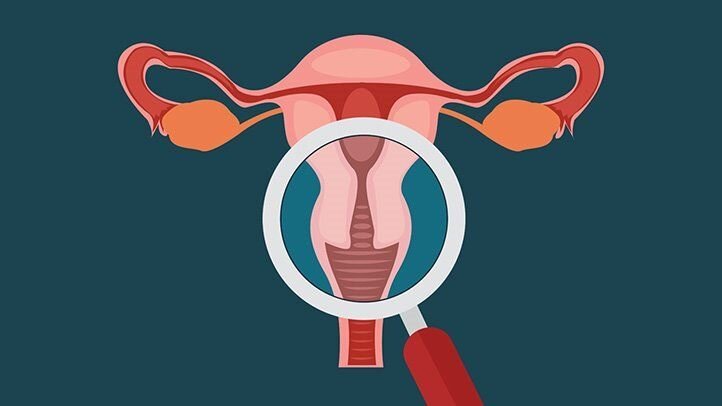When it comes to women’s health, particularly gynecological care, choosing the right doctor is a significant decision. Gynecological issues can be deeply personal, and many women feel more comfortable discussing them with a doctor they can trust. This is one of the main reasons why many women prefer to choose a female gynecologist. In this article, Dr. Shweta Mendiratta, the best Laparoscopic Surgeon in Faridabad, explains the benefits of laparoscopic surgery for endometriosis and why she is a trusted expert in the field.
- Comfort and Trust
One of the most common reasons women choose a female gynecologist is the comfort and trust they feel. Gynecological exams and procedures can be sensitive topics, and many women feel more at ease with a female doctor. Female gynecologists often create a more relaxed and comfortable environment, making it easier for patients to discuss their health concerns openly without feeling embarrassed. Dr. Shweta Mendiratta is known for her compassionate approach, which ensures that every woman feels heard, respected, and comfortable throughout her treatment.
- Understanding Women’s Health Needs
Female gynecologists often have a unique perspective on women’s health issues due to their own personal experience. This can lead to a deeper understanding of the physical and emotional challenges women face. Whether it’s hormonal imbalances, menstrual irregularities, or pregnancy-related concerns, Dr. Shweta Mendiratta brings empathy and understanding to every consultation. Her in-depth knowledge of women’s health ensures that each patient receives a personalized treatment plan tailored to her specific needs.
- Confidentiality and Compassionate Care
Many women prefer to consult a female gynecologist because they feel more comfortable discussing sensitive topics, such as sexual health, family planning, and infertility. Female gynecologists, like Dr. Shweta Mendiratta, prioritize confidentiality and offer a non-judgmental approach to ensure that women feel safe and supported during their visits. Dr. Mendiratta’s compassionate care and professional approach make her a trusted choice for many women in Faridabad who value confidentiality and a personalized approach to their health.
- Expertise in Female-Specific Health Conditions
Female gynecologists have specialized knowledge in treating conditions that specifically affect women. From adolescence through menopause, women experience various changes in their reproductive and hormonal systems. A female gynecologist is often better equipped to understand and treat these conditions with empathy and expertise. Dr. Shweta Mendiratta’s expertise in handling a wide range of female-specific health concerns, such as polycystic ovary syndrome (PCOS), endometriosis, fibroids, and pelvic pain, makes her one of the top choices for women seeking comprehensive care in Faridabad.
- Comfort in Discussing Pregnancy and Childbirth
For women who are planning to conceive, are already pregnant, or are navigating the post-delivery phase, choosing a female gynecologist can make the experience more comfortable. Dr. Shweta Mendiratta offers specialized care for women throughout their pregnancy journey. From prenatal check-ups to labor and delivery, having a female gynecologist who understands the physical and emotional aspects of pregnancy can be a great source of comfort. Dr. Mendiratta provides expert guidance on everything from managing morning sickness to postnatal care, ensuring both the mother and baby are healthy and well-supported.
- Focus on Holistic and Preventive Care
Dr. Shweta Mendiratta emphasizes the importance of preventive care and health education for women. Regular gynecological check-ups, screenings for cervical cancer, breast health, and family planning are essential for maintaining long-term health. As a female gynecologist, Dr. Mendiratta is particularly attentive to providing holistic care, ensuring that women not only receive treatment but also gain knowledge about how to maintain their overall well-being. Whether it’s recommending lifestyle changes or providing emotional support during difficult times, Dr. Mendiratta offers a comprehensive approach to women’s health.
- Personalized and Patient-Centered Approach
Dr. Shweta Mendiratta’s patient-centered approach means that every woman’s health journey is unique. She takes the time to understand each patient’s needs, concerns, and health history to create a tailored treatment plan. This personalized care ensures that women feel heard and valued during each visit. Whether addressing menstrual disorders, pelvic health, or sexual wellness, Dr. Mendiratta’s focus is always on providing the best care possible for her patients.
Why Dr. Shweta Mendiratta is the Best Female Gynecologist in Faridabad
Dr. Shweta Mendiratta is a leading female gynecologist in Faridabad, known for her expertise in both routine and high-risk gynecological care. With years of experience and a compassionate approach, Dr. Mendiratta provides a wide range of services, including preventive care, pregnancy management, and the treatment of complex gynecological conditions. Her deep understanding of women’s health, combined with her patient-first approach, has earned her the trust of countless women in Faridabad and beyond.
Schedule a Consultation Today
If you’re looking for a female gynecologist who understands your health needs and is committed to providing the best possible care, look no further than Dr. Shweta Mendiratta. Whether you have questions about menstrual health, pregnancy, or any other gynecological concerns, Dr. Mendiratta is here to help you every step of the way.
Contact Dr. Shweta Mendiratta today to schedule a consultation and take the first step towards better health and well-being. Your health is her top priority, and she’s here to support you in every stage of your life.



